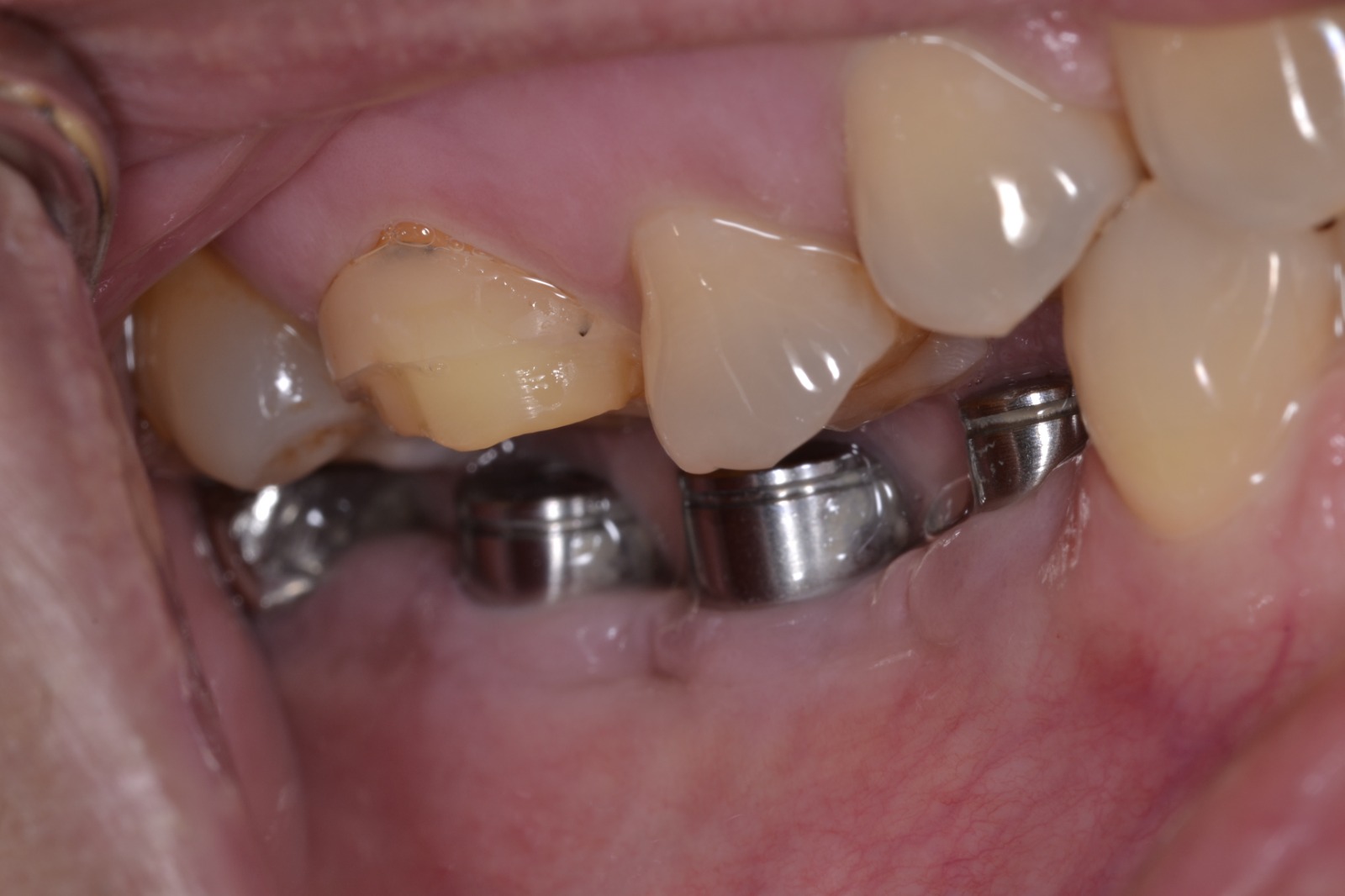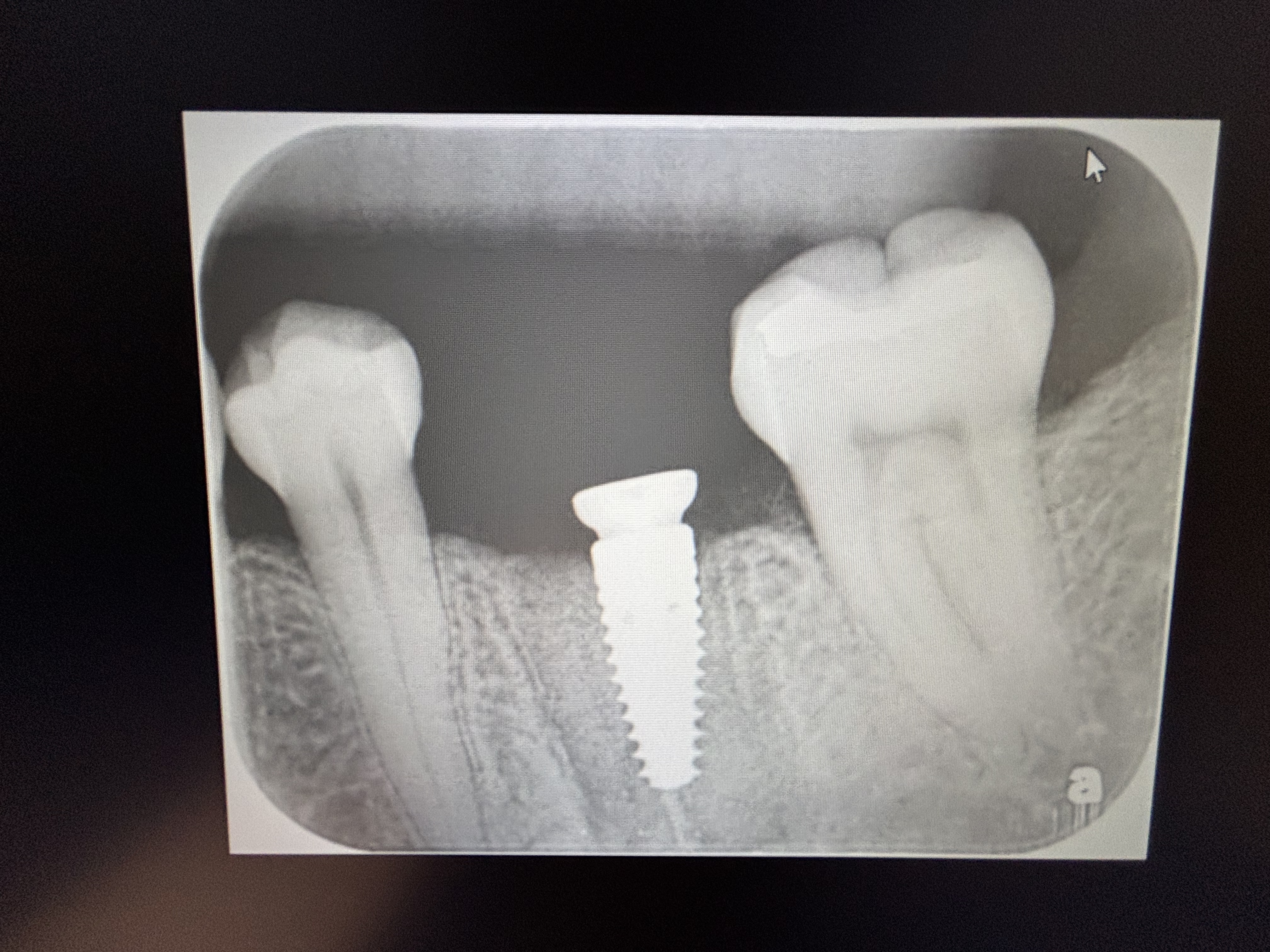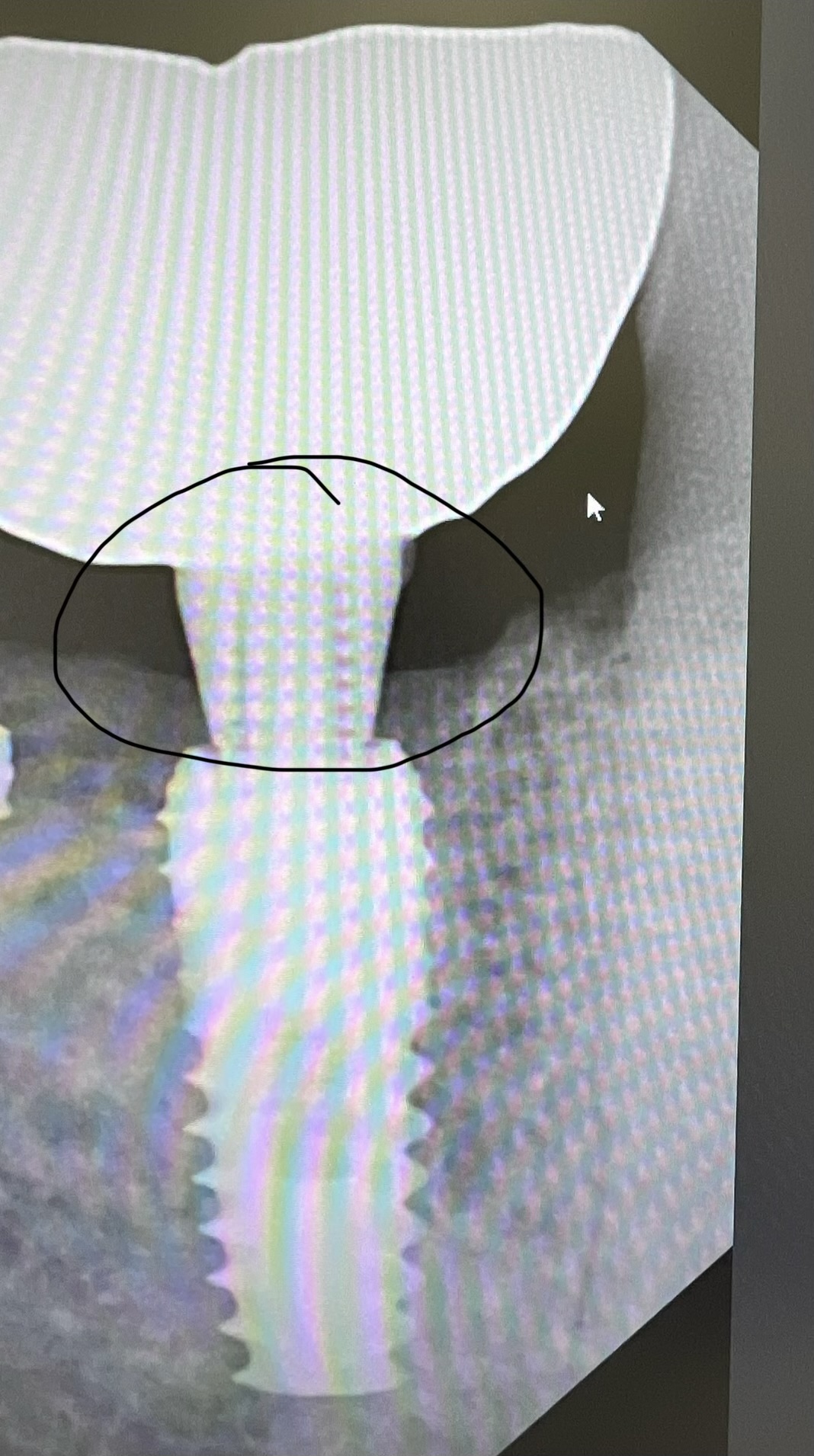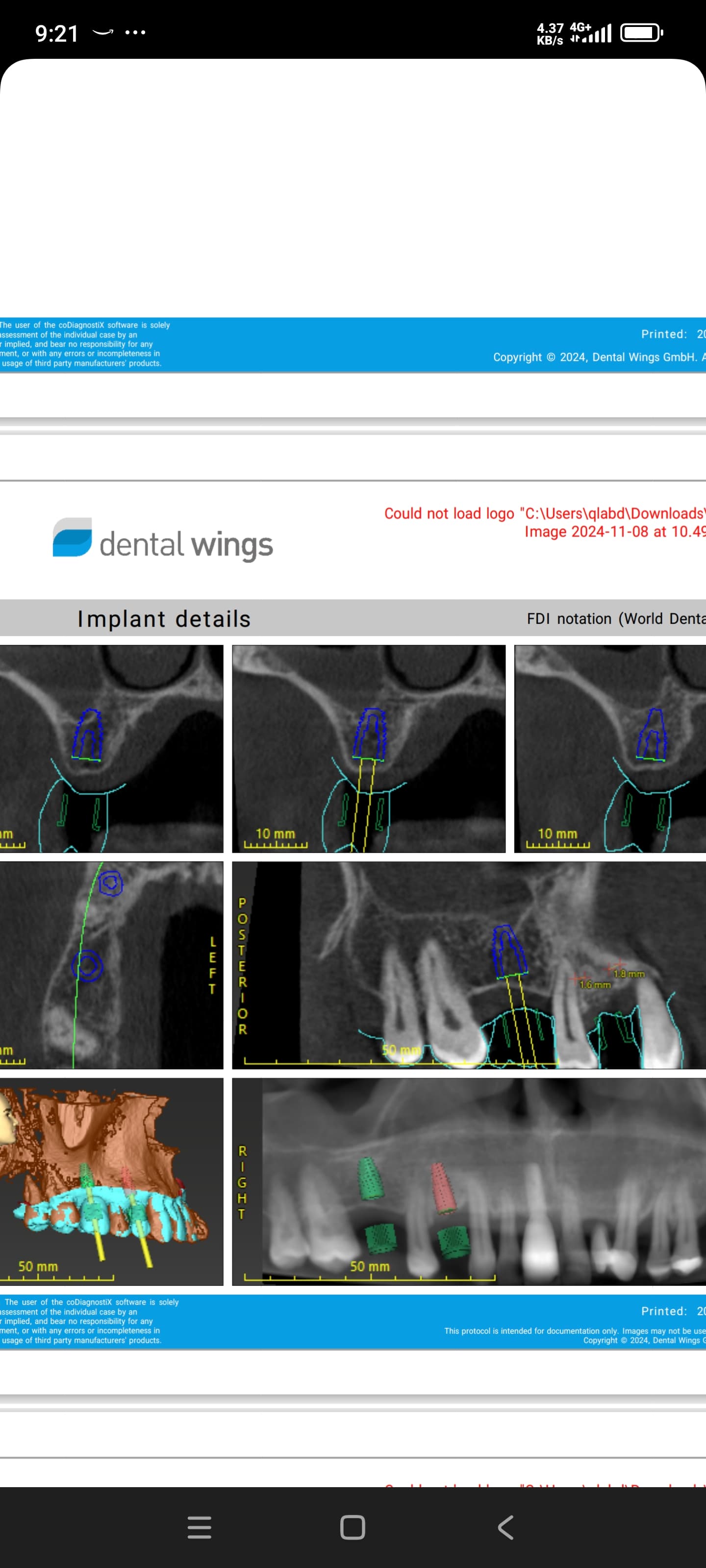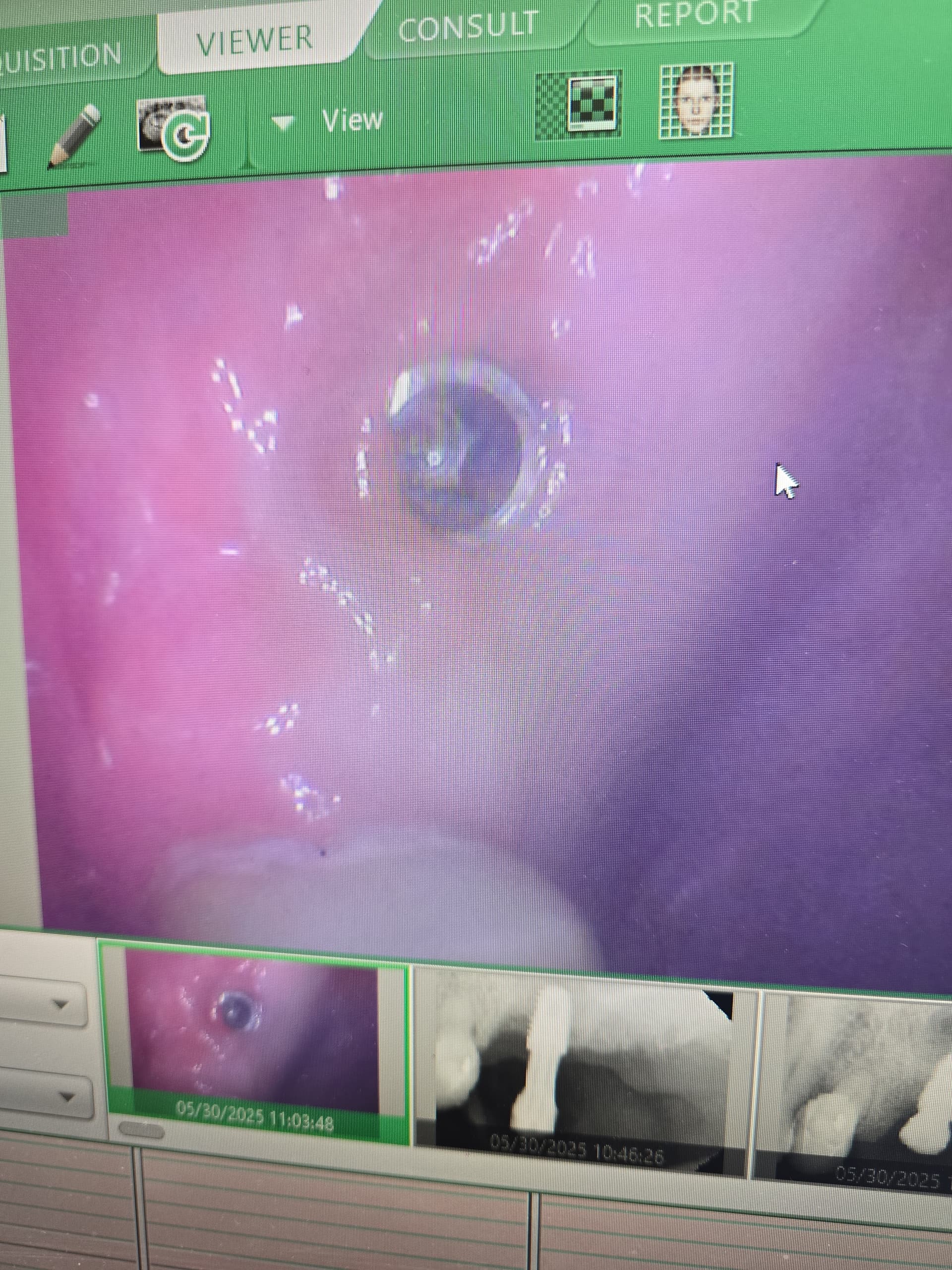Implant Patient Taking Aspirin: Should I Proceed?
Dr. S. asks:
I am planning to place a dental implant immediately following tooth extraction. Patient takes one aspirin daily. His physician refuses to get him off it. Please advise if it is safe to proceed and what precautions to take and ways to handle the procedure and bleeding after.
One of my concerns is that I will not be able to pack a hemostatic material into the extraction socket because I will be delivering bone graft material. I am not sure that I will be able to achieve primary closure. I do not want to perform this procedure if exsanguination can become life-threatening and result in a medical emergency. Any thoughts?
13 Comments on Implant Patient Taking Aspirin: Should I Proceed?
New comments are currently closed for this post.
Dr. Mehdi Jafari
6/25/2007
Aspirin is the most commonly used preventive and therapeutic agent for cardiovascular ischemic events. It acts by irreversibly inactivating, for the lifespan of the platelet, the cyclooxygenase enzyme which is responsible for formation of prostaglandins and thromboxane A2. Aspirin is rapidly absorbed from the proximal intestine and stomach and converted to salicylate, which has peak circulating levels within 2 hours after ingestion. The bleeding time test is not at all useful to assess oral bleeding after oral surgical procedures. Low-dose aspirin therapy (100 mg per day or less) should by no means be interrupted for the patients receiving dental implants because when intraoperative or postoperative bleeding occurs, local hemostatic methods are generally effective. The clinician should never forget that the benefit of daily Aspirin taking to patients (preventing a thromboembolic episode) strongly outweighs the risk (bleeding episode).With the small amounts of the drug that are used for its antiplatelet activity (81 mg daily), very few episodes of bleeding may be confronted, or if ever, it won’t be life threatening.
SFOMS
6/26/2007
I agree, the ADP pathway for platelet aggregation is still intact and should have slightly increased bleeding after a procedure. However the age of the patient does affect post-operative ecchymosis when on aspirin.
Dr. Bill Woods
6/26/2007
There is also a mindset now concerning the discontinuation of plavix. One of the concerns is that by doing so, that could potentiate a medical crisis for the patient. Some say why risk this for the patient. COncerning bleeding, I have just had my first real post-op coagulopathy event from what may appear to be from a patient being treated for Rheumatoid Arthritis with Plaquanil. This was an older patient that was on minimal meds which included Plaquanil and 81mg ASA. She had d/c'd the ASA a week prior but not the Plaquanil. I did 3 single rooted extractions, MFDB and an Ossix membrane. Hemorrhage WNL upon discharge, then I saw her almost every other day for 2 weeks, including a trip to the ER and 2 visits to the OMFS. Nothing remarkable, she just wouldnt stop leaking. Fine one day, leaking the next. She even leaked through her suture holes for a week on the other side from a single ext away from the Ossix. The membrane and graft remained intact. She bled over it (periosteum, I think). I cant say it was the ASA. I just havent seen ASA patients leak like this. We think she might have had a factor problem but those lab results arent back yet.No hx of liver problems. No HBP. Definitely raised my eyebrows about it. The RA MD said it was the Plaquanil. Anybody have any experience with that? Bill
Dr. Jeffrey Field
6/26/2007
Aspirin as stated above will irreverisibly inactivate platelets. It is used alone as a cardiac prophylaxis for many patients in the low risk category. Patients at high risk are usually on other medications like plavix. If this is the only cardiac prophylactic medication that the patient is on he likely is NOT in a high risk group and would be OK if the medication is discontnued for 5-7 days preop and restarted 48 hours postop. If he physician is that worried about him another option is to DC the aspirin and put the patient on low molecular weight heparin for the week preop. This medication will only last 24 hours and so the patient gets one injection per day until the day of surgery on which it is not given. The ASA is restarted one day postop.
By acknowledging the physicians concerns ( real or imagined) you will be able to sort this out. If the doctor is still being difficult and the patient is in the low risk group gert a second opinion from another cardiologist.
Robert J. Miller
6/27/2007
Do you routinely get a pre-op PT and PTT before surgery? Here in Florida, virtually every patient is on some med that will affect bleeding times. You should be getting medical clearance before your surgeries to protect yourself from these surprises.
Dr. Mehdi Jafari
6/28/2007
Clopidogrel (Plavix®) selectively and irreversibly inhibits adenosine diphosphate (ADP)-induced platelet aggregation. Long-term administration of clopidogrel is associated with a modest but statistically significant advantage over aspirin in reducing adverse cardiovascular outcomes in patients with established cardiovascular disease. The addition of clopidogrel to aspirin therapy improved outcomes in patients with acute coronary heart disease. However, some issues regarding the use of clopidogrel remain unresolved, such as the optimal loading dose in patients undergoing percutaneous coronary interventions (PCI) and the optimal treatment duration following drug-eluting intracoronary stent placement. Some very well-known cardiologists consider clopidogrel as an effective and well tolerated antiplatelet agent for the secondary prevention of ischemic events in patients with various cardiovascular conditions, including those with ischemic episode or acute coronary events. In patients with previous myocardial infarction, combined therapy including clopidogrel plus aspirin is more effective than either agent alone after platelet activation with low-dose thrombin, and clopidogrel is more effective than aspirin in inhibiting activation and aggregation of platelets induced by adenosine diphosphate. Treatment with these two agents has shown synergistic inhibitory effect on platelet activation and aggregation compared with single agent treatment.Dr. Wood's patient seems to have been under the above-mentioned combination therapy.
Dr. Mehdi Jafari
6/28/2007
Plaquenil is hydroxychloroquine sulfate which is originally an anti-malaria agent. It belongs to a category of drugs that are used to modify or palliate the general status of Rheumatoid Arthritis patients. These kinds of drugs are generally called DMARDs. It has a very slow onset of action (four weeks at least) and a very low toxicity, but some adverse effects on bone marrow e.g. myelosuppression, neutropenia, anemia and thrombocytopenia , which may enhance the anti-platelet activity of the aspirin that is being taken by the patient. Neither of these drugs can cause that kind of bleeding. The clinical features of an oral surgical wound that is leaking out of the sutured lines may redirect our attention towards a consumption coagulopathy (DIC), a primary fibrinolysis, or even a defective coagulation factor (XI or Von Willebrand). Cases like Dr. Wood’s, may force us all to check all the patients’ PT and PTT out, before any dental implant related surgery.
Carolyn Huffman
11/17/2007
I'm a senior citizen and two years ago my cardiologist told me to take an 81mg aspirin every morning - just to stay heart healthy I think, and I have been doing what he told me to do.
However, I'm now concerned about getting anemia because a senior citizen friend of mine who took a daily low dose aspirin tablet for years now has to get iron infusions on a regular basis - iron tablets are out for her (constipation). She eats lots of red meat and other sources of iron but that doesn't seem to build up her iron.
Should I, or shouldn't I take a daily low dose aspirin? Thank you for any input you can give me. Carolyn Huffman
Dr. H
11/17/2007
Dear Carolyn. This isnt the best site you could go to for specific medical advice. This site is made up of dentists taking about care of dental related issues. While we do talk about medical related issues that may have an impact on your dental treatment and most of us have medical backgrounds this isnt the forum for you to ask your question. I suggest you contact your primary care doctor or another website like webmd to pose your question. Good luck to you.
drs. T
11/18/2007
What about the use of hemcon? I works really well after extraction. Even allthought I haven't had a uncontrolled bleeding after mild surgery on patients on ascal or cardio 100mg. The only problems to stop the bleeding, I have experienced on patients with asperin who had more medical problems like using prednison for long times, having senil purpura, etc: elderly with extreem fragile bloodvessels.
Jean
11/20/2007
Dear Carolyn,
Insofar as iron, when I owned a health food store we had an M.D. in the area who always told his patients to take Albion Chelated Iron. It is iron bound to amino acids and very easy for the body to assimilate and does not cause a problem of constipation. Swanson Vitamins carries it and it is reasonably priced. This might just help your friend. Good luck....
Dr L M B
7/11/2008
With regards to implant placement, has anyone had problems with placing them in a patient with Von Willenbrands Type1 ? Are there specific blood tests or blood levels that should be checked prior to placement and/ or surgery?
KBRN
10/12/2008
As far as aspirin therapy goes, the doctors do not like to take a patient off of it after long term therapy related to a chance of rebound clotting causing a stroke, PE, or MI. I you are concerned about excessive bleeding have a PT and INR ran at a lab or hospital. Most people on aspirin therapy have an slightly increased bleed time, but it is generally easy to control










